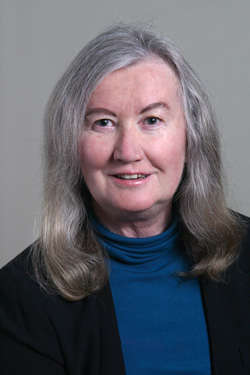
At a government-funded scientific institute, we are usually preoccupied by the daily business of science—setting of budget priorities, review and approval of grants, and management of the public–private partnerships that are the backbone of science—and so it is easy to forget the human element, the visionaries who inspire us and lay a foundation of knowledge that sets a standard for our field. But I want to take the opportunity to acknowledge one of those scientific visionaries, Nancy K. Mello, PhD, who passed away on November 25th at the age of 78.
A professor of psychology (neuroscience) at Harvard Medical School and a long-time NIDA grantee, Mello was a pioneer in the study of addiction, having done some of the first laboratory research on alcohol self-administration and withdrawal effects in people with alcoholism. In 1985, Mello and her husband, Jack H. Mendelson, MD, published Alcohol Use and Abuse in America, which examined the history of alcohol in American society as well as the biology of alcohol abuse. Both also made major contributions to our understanding of other substance use disorders, exemplified by their 1980 Science paper, which was the first to suggest that the drug buprenorphine could be used to treat opioid dependence. A little over two decades later, buprenorphine received FDA approval, and is now one of the most commonly used and effective treatments available for opioid addiction.
Mello’s stature in the field of substance abuse research made her widely sought as an authority. She edited several journals, consulted to President Carter’s Biomedical Research Panel, and served on the nominating committee for the Nobel Prize for Physiology and Medicine. She had also chaired the NIDA Board of Scientific Counselors.
Until her death, Mello was director of McLean Hospital's Alcohol and Drug Abuse Research Center (ADARC), which she co-founded with her husband in 1974. Beginning in 1991, Mello’s institution has received NIDA Drug Abuse Research Training Program grants nearly annually, helping launch the independent research careers of many young scientists. Mello also tirelessly continued her own research—most recently, on sex differences in response to nicotine and medication treatments for abuse of cocaine in combination with nicotine or heroin, both supported by grants from NIDA.
Nancy Mello was a role model for women in the field of substance abuse research, as well as a great inspiration for all researchers striving to understand and treat addiction. She will be greatly missed.
